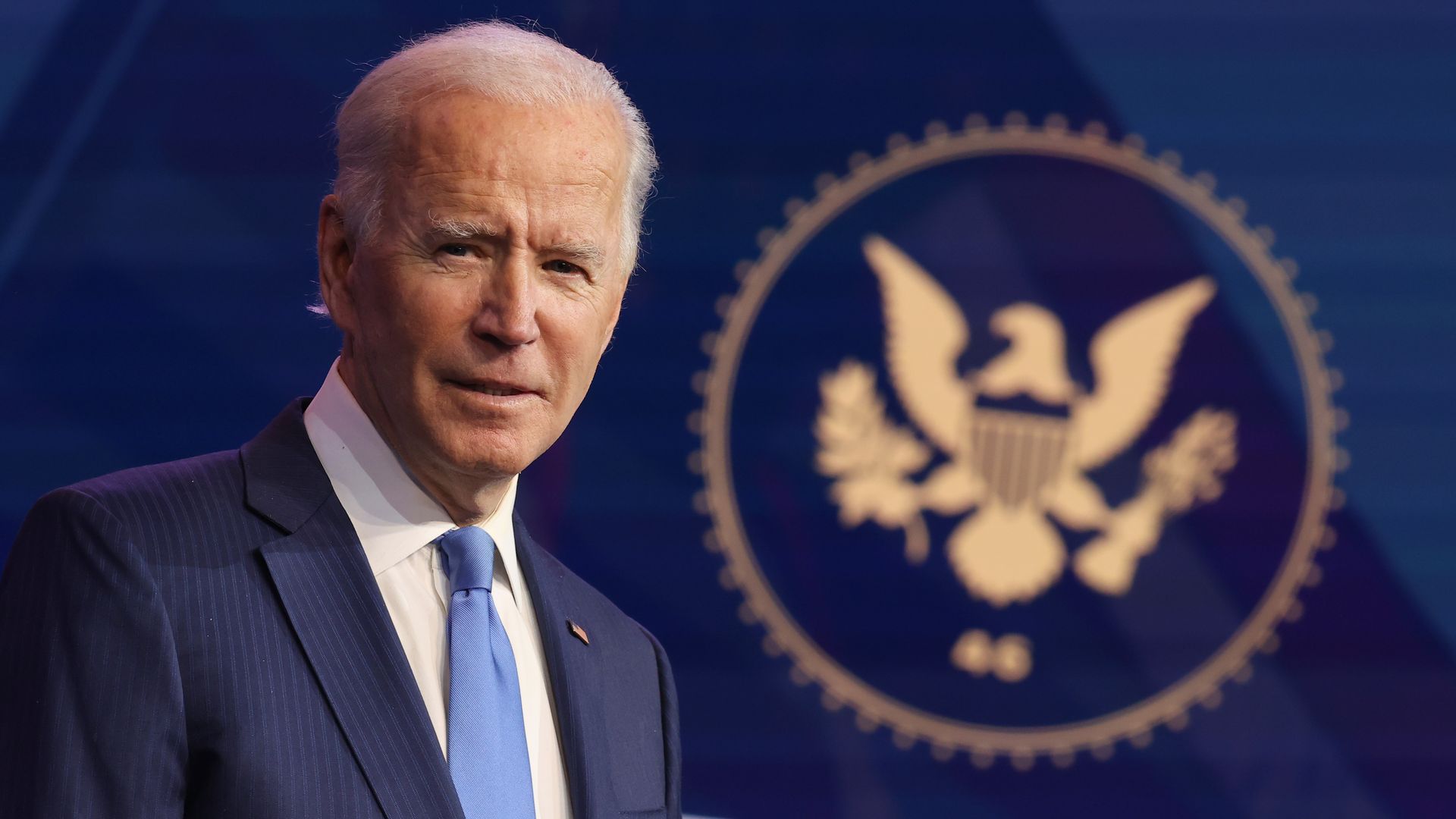States prepare for pandemic-era Electoral College meeting
Add Axios as your preferred source to
see more of our stories on Google.

President-elect Joe Biden. Photo: Chip Somodevilla/Getty Images
Tomorrow, state electors who'll finally cast their Electoral College votes formalizing Joe Biden's win, will gather in person at state capitols across the U.S., even during a pandemic.
Between the lines: Capitol compounds already provide security. But fear of unrest is heightening precautions. Meanwhile, states including California, Wisconsin, Maryland and New Mexico are live-streaming meetings so the public can watch safely from home.
- "There are always logistical challenges" but "the pandemic is adding an extra layer this year," a National Archives official involved in discussions with states tells Axios.
- The official said that because federal statute requires electors to sign the certificates of the votes, a completely remote ceremony would be logistically difficult.
How it works: While federal statute establishes the voting date, states can decide what time to hold their meetings of electors. The more populous states typically take longer to complete their ceremonies.
- Electors vote twice — once for president and a second time for vice president —according to the National Archives.
- The votes are recorded on six certificates, which are paired with the state's certification of election results. Every elector must verify and sign the sets of electoral votes.
- Votes are sent by mail — some states require it to be through the U.S. Postal Service — to the National Archives and the Vice President.
Between the lines: To prevent Monday turning into a multistate superspreader event, states are requiring masks and enforcing social distancing. Texas officials said temperatures will be taken at the door at their gathering.
- Peter Bartz-Gallagher, a spokesperson for the Minnesota secretary of state, tells Axios there will be "less ceremonial activity" this year. While in past years, many guests and observers were welcomed, in-person "attendance is limited this year to the electors and essential staff, with just a few spaces for members of the public."
One big question: How much impact could "faithless electors" have?
- While 33 states and D.C. have laws forbidding electors from voting for someone other than the winner of their state's elections, few have penalties for doing so.
- There have been "faithless electors" in the past, but they have never come anywhere close to impacting the election.
- Experts think it's unlikely that there will be faithless electors this year because of the extra care taken by political parties to ensure their chosen electors will be loyal — lessons learned from 2016.
- "We might see some Trump electors casting faithless votes as some sort of protest, but that wouldn't impact the outcome," election law expert Michael Morley tells Axios.
What we're watching: Edward Foley, an election law professor at The Ohio State University noted law enforcement’s concern about the possibility of unrest caused by Trump supporters around state capitols.
- For Monday's Electoral College meeting to become politicized would be "unusual in terms of the sweep of American history," Foley said.
